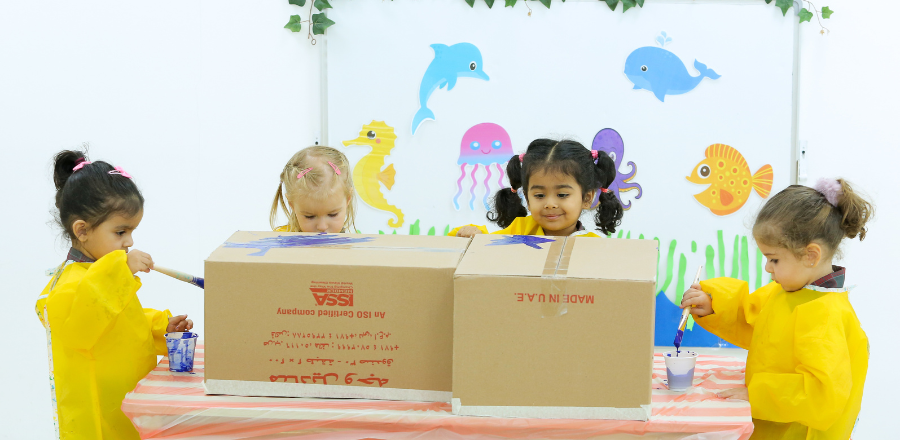What is Play-Based Learning and Why Is It Important?
- August 18, 2024
- Childcare

What is Play-Based Learning?
Play-based learning is an educational approach where children learn through engaging in play activities that are both fun and purposeful.
This method emphasises child-led exploration, where children choose activities based on their interests, while educators guide and facilitate the learning process.
Through play, children develop essential cognitive, social, emotional, and physical skills, making learning a natural and enjoyable experience. This approach is particularly effective in early childhood education, laying a strong foundation for lifelong learning and curiosity.
Core Principles of Play-Based Learning
Child-Led Exploration
Children take the lead in play-based learning by choosing activities that interest them. This approach fosters autonomy and engagement, allowing them to explore and learn at their own pace.
Role of Educators
Educators act as facilitators, guiding and supporting children’s learning through observation and interaction. They create an environment that encourages exploration while ensuring educational goals are met.
Balance Between Free Play and Structured Play
A balanced approach includes both free play, which fosters creativity, and structured play, which targets specific learning outcomes. This ensures children develop essential skills while enjoying the learning process.
Benefits of Play-Based Learning
Cognitive Development: Enhances problem-solving and critical thinking skills through interactive and hands-on activities that challenge the mind.
Social-Emotional Growth: Promotes cooperation, empathy, and emotional regulation as children engage in play with peers, learning to navigate social interactions.
Physical Development: Supports motor skills and overall physical health by encouraging movement, coordination, and fine motor activities during play.
Language and Literacy Development: Expands vocabulary, storytelling abilities, and communication skills as children engage in conversations and imaginative play.
Fostering a Lifelong Love for Learning: Cultivates curiosity and a positive attitude towards learning by making education enjoyable and engaging from an early age.
Types of Play in Play-Based Learning
Free Play vs. Guided Play
Free play allows children to choose their activities without specific goals, fostering creativity, independence, and decision-making skills. In contrast, guided play involves subtle adult direction to achieve targeted learning outcomes, blending the freedom of play with structured educational objectives.
Pretend Play
Pretend play, also known as imaginative or role play, lets children explore different scenarios and roles, such as pretending to be a doctor or teacher. This type of play enhances creativity, problem-solving, and social understanding as children navigate various perspectives and situations.
Sensory Play
Sensory play engages children’s senses through activities like playing with sand, water, or textured materials. This type of play is crucial for cognitive development, helping children explore the world around them while improving fine motor skills and sensory processing.
Implementing Play-Based Learning
In Classroom Settings
In the classroom, play-based learning can be implemented by creating various activity centres that encourage exploration and creativity. Educators can set up spaces for art, science, building, and role-play, allowing children to choose where they want to engage. These centres should be stocked with materials that align with educational goals while still allowing for free expression and discovery.
At Home
At home, parents can encourage play-based learning by providing a range of toys and materials that stimulate imagination and problem-solving.
Activities like building blocks, pretend play, and simple science experiments can be part of daily routines. Parents can also play an active role by participating in these activities, guiding their child’s learning in a fun and informal way.
Community and Outdoor Environments
Community and outdoor environments offer rich opportunities for play-based learning. Parks, playgrounds, and nature trails provide spaces for physical play, exploration, and social interaction.
Community centres and libraries can also host play-based activities and workshops that bring children together to learn through shared play experiences.
To know more click here.



